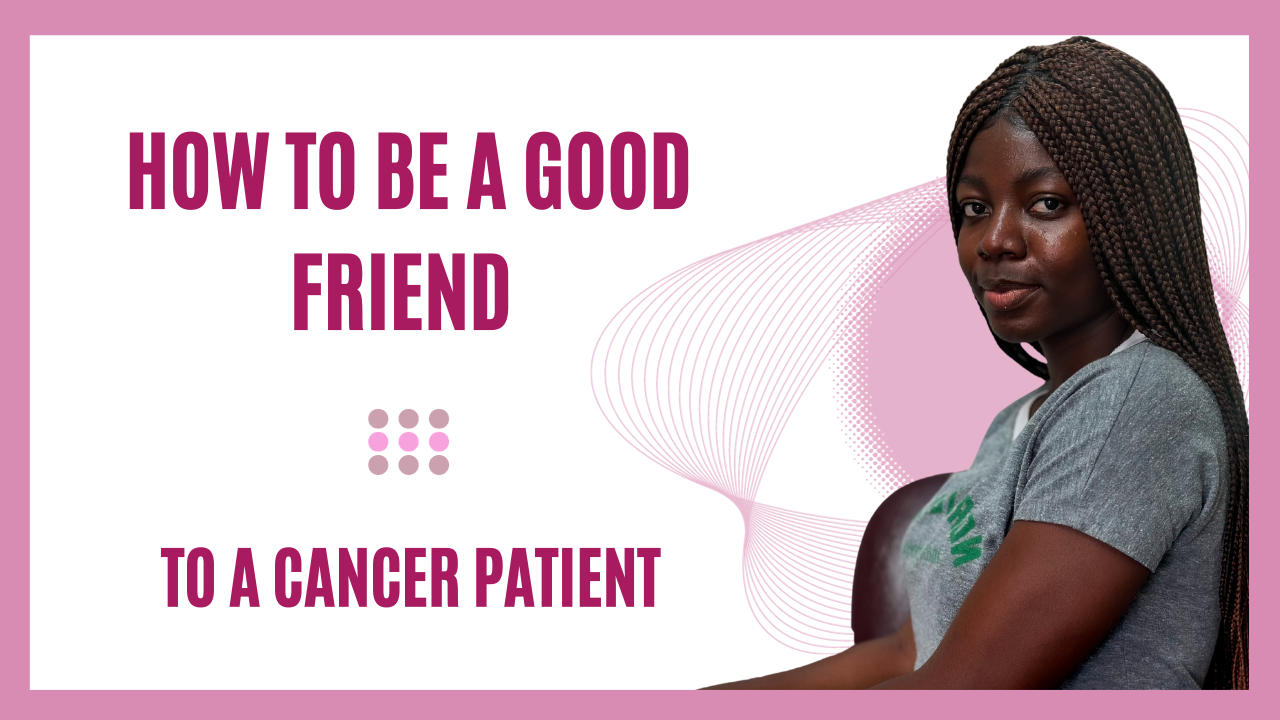Cancer is a formidable adversary that affects millions of lives worldwide. When someone close to you is diagnosed with cancer, being a good friend becomes more crucial than ever. A cancer diagnosis can bring about a whirlwind of emotions and challenges, and your support can make a significant difference in your friend’s journey. In this blog post, we’ll explore how to be a good friend to a cancer patient, offering guidance on what to do and what not to do as you navigate this challenging path together.
Understanding the Impact
Before delving into specific actions, it’s essential in being friend to a cancer patient, to understand the emotional and physical impact of cancer on your friend’s life. Empathy and knowledge are your best allies in this situation. Hence,
- Educate Yourself: Learn about your friend’s specific type of cancer, its treatment options, and potential side effects. This knowledge will enable you to have informed conversations and offer meaningful support to your friend with cancer.
- Be Empathetic: Put yourself in their shoes. Understand that your friend with cancer may experience a wide range of emotions, from fear, anger, and sadness to hope and acceptance. Don’t judge their feelings, be there to listen and offer a shoulder to lean on.

Being a Good Friend to a Cancer Patient
- Showing Up: One of the most powerful ways to be a good friend to a cancer patient is simply showing up and offer your presence when your friend with cancer needs it the most. Cancer can be very isolating. Spend as much time as you can with your friend – you may be a pleasant distraction and help them feel like they did before cancer took up so much of their attention. Make frequent, brief visit as opposed to rare, lengthy ones. Understand that your friend with cancer might not want to talk, but they may not like being alone either. Mention your next visit so your friend can anticipate. Try to avoid visiting on weekends or holidays when others may visit. There may be sameness of time to house-bound patient. A Wednesday morning can be just as lonely as a Saturday night. Start and end the visit with a touch, an embrace, or a handshake.
- Be a Good Listener: Cancer patients frequently need to share their emotions and anxieties. Be a compassionate listener, allow them to express themselves without interjection or unsolicited advice. Don’t bring up old habits like drinking or smoking that might have been connected to the sickness. Some individual feel guilty over those things. Listen without always feeling that you have to speak back. Sometimes a sympathetic ear is what the person needs most. Support your friend’s feelings. Resist the urge to switch the subject.
- Offer Practical Help: Cancer treatment can be physically taxing. Help with daily duties like driving them to an appointment, grocery shopping, meal preparation, or even house cleaning, return or pick up library books, movies, or books on Cd, help to make to-do lists. This little heart of kindness can make a big difference and helps you in being a good friend to a cancer patient.
- Respect Boundaries: Understand that there may be times when your friend with cancer needs space. Respect their boundaries and don’t take things too personally. It’s normal for the person with cancer to be quieter than usual, and to be angry at times, be patient if they need alone time.
- Send Care Packages: Sending thoughtful gestures like care packages, filled with comforting items or personalized notes is another way of being a good friend to a cancer patient. Look for small, practical things your friend may need or just enjoy. Think about what their average day is like and what might make it a little better. It’s always good to laugh and smile, too, so look for fun things for your friend. Make sure gifts are useful right away. Small gifts given frequently are usually better than large, one-time gifts. Give a gift to the caregiver; it’s as welcome as a gift to your friend. Give gift like customized stainless steel water bottle, chemo backpack, journal or notepad, Soft or silly socks, fun hats or scarves, pajamas or a robe, unusual toiletries, such as soap and lotion, Self-care items, such as a cancer resource book, a special pillow, or a heating pad.
- Provide Support: Everyone, no matter how strong, can benefit from having a friend. Your friend with cancer needs you and your support. Cancer patients may go through moments of despair. Offer emotional support, encourage them to seek counseling if needed, and provide information on support groups or online communities where they can connect with others facing similar challenges. Some people find it hard to accept support – even when they need it. Don’t be surprised or hurt if your friend refuses help. It’s not you. It’s more about pride and their need for independence. Assume your help is needed, even if there are others also helping out. Offer practical ideas on what you can do to help, and then follow through. If your friend needs medical equipment or money for treatment, you can look into getting something donated or organizing ways to help raise money.
What Not to Do
- Avoiding the Topic: While it’s essential to respect boundaries, don’t completely avoid discussing cancer if your friend wants to talk about it. Ignoring the topic can make them feel isolated.
- Offering Unsolicited Medical Advice: Unless you are a medical professional, avoid giving unsolicited advice about treatment options or alternative therapies. Always defer to the guidance of healthcare experts.
- Making It All About You: It’s okay to share your feelings and experiences, but remember that your friend with cancer is the one facing challenges. Try not to make their situation about your feelings or experiences.
- Pity or Overwhelming Sympathy: While empathy is essential, avoid overwhelming your friend with cancer with excessive sympathy or treating them with pity. They want to maintain their dignity and independence.
- Judging Choices: Respect your friend’s decisions regarding their treatment and lifestyle. Whether they choose conventional or alternative therapies, support their choices.
Conclusion
Being a good friend to a cancer patient requires compassion, patience, and a willingness to adapt. Your unwavering support can make a world of difference in their battle against this challenging illness. Educate yourself, be a listening ear, offer practical help, and respect boundaries. By doing so, you’ll not only be a good friend but also a source of strength and comfort during this difficult time. Remember, it’s the little things that can brighten their path and help them in their journey toward recovery, your role is invaluable in their life during this challenging time.
REFERENCE
American Cancer Society-https://www.cancer.org/-Accessed October, 10th, 2023.



What do you think?
It is nice to know your opinion. Leave a comment.